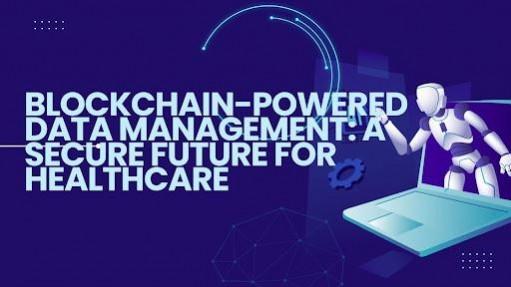
Healthcare generates vast amounts of data daily, yet managing and securing this data remains a persistent challenge. Traditional Master Data Management (MDM) systems struggle with security vulnerabilities, data silos, and inefficiencies. In a groundbreaking innovation, Chandra Sekhara Reddy Adapa explores the integration of blockchain technology into MDM, proposing a revolutionary approach to ensuring data integrity and security.
Overcoming Data Silos with Decentralization
Interoperability between healthcare systems remains a significant barrier to quality care. Blockchain technology eliminates traditional data silos by creating a distributed ledger accessible to authorized stakeholders across the healthcare ecosystem. This permissioned network architecture maintains robust security while enabling real-time data sharing. Healthcare providers can access comprehensive patient histories regardless of where care was previously delivered, reducing redundant testing and treatment delays. The immutable nature of blockchain records ensures data integrity, while smart contracts can automate compliance with privacy regulations and patient consent management, streamlining administrative processes while enhancing patient trust in the system.
Enhancing Security Through Advanced Encryption
Traditional centralized data storage systems are vulnerable to breaches and unauthorized modifications. The blockchain-based MDM solution integrates advanced encryption techniques, including attribute-based encryption (ABE) and Ciphertext-Policy Attribute-Based Encryption (CP-ABE). These mechanisms ensure that only authorized personnel can access sensitive healthcare data, drastically reducing the risk of unauthorized exposure. Research shows that blockchain-based encryption can lower unauthorized access attempts by up to 93% while maintaining system efficiency.
Smart Contracts for Automated Compliance
Regulatory compliance remains a key concern for healthcare institutions. Blockchain's smart contract technology offers a novel solution by automating compliance verification. These self-executing contracts enforce predefined data governance rules, ensuring that data usage adheres to industry regulations. By eliminating manual oversight, smart contracts significantly reduce administrative overhead while improving audit transparency. Studies suggest that blockchain-enabled compliance tracking can enhance reporting accuracy by up to 99.9%.
Blockchain's immutable audit trail provides unprecedented visibility into data access and modifications, creating a robust framework for demonstrating HIPAA compliance. This technology can automatically verify patient consent parameters before permitting data exchange, reducing liability risks. Additionally, smart contracts can enforce role-based access controls that adapt to changing regulations without system-wide updates, future-proofing compliance infrastructures while reducing implementation costs across healthcare networks.
Distributed Storage for Improved Data Availability
Managing vast amounts of unstructured data, including medical imaging and clinical notes, poses a significant challenge. Traditional storage methods often lead to inefficiencies and increased operational costs. The integration of the InterPlanetary File System (IPFS) into the blockchain-based MDM solution addresses these issues by enabling distributed storage. This approach enhances data availability, with reports indicating a 99.99% uptime rate while reducing storage expenses by nearly 47%.
The content-addressed architecture of IPFS ensures data integrity through cryptographic verification, eliminating duplication and minimizing vulnerability to centralized system failures.
Scalability and Interoperability: The Road Ahead
While blockchain technology offers remarkable improvements in data security and management, its scalability remains a challenge. Future advancements must focus on optimizing transaction processing speeds and refining consensus mechanisms to accommodate the growing volume of healthcare data. Additionally, interoperability between different blockchain systems will be crucial in ensuring seamless data exchange across diverse healthcare networks. Implementing standardized APIs and cross-chain communication protocols will be pivotal in addressing these concerns.
In conclusion,by integrating blockchain with cutting-edge encryption and distributed storage technologies, the proposed MDM solution presents a forward-thinking approach to healthcare data management. The transition to a blockchain-based system promises significant enhancements in security, efficiency, and compliance, paving the way for a more resilient healthcare infrastructure. As healthcare organizations continue to seek innovative solutions to safeguard patient data, the insights presented by Chandra Sekhara Reddy Adapa mark a transformative step toward a secure and efficient future in data management.

















